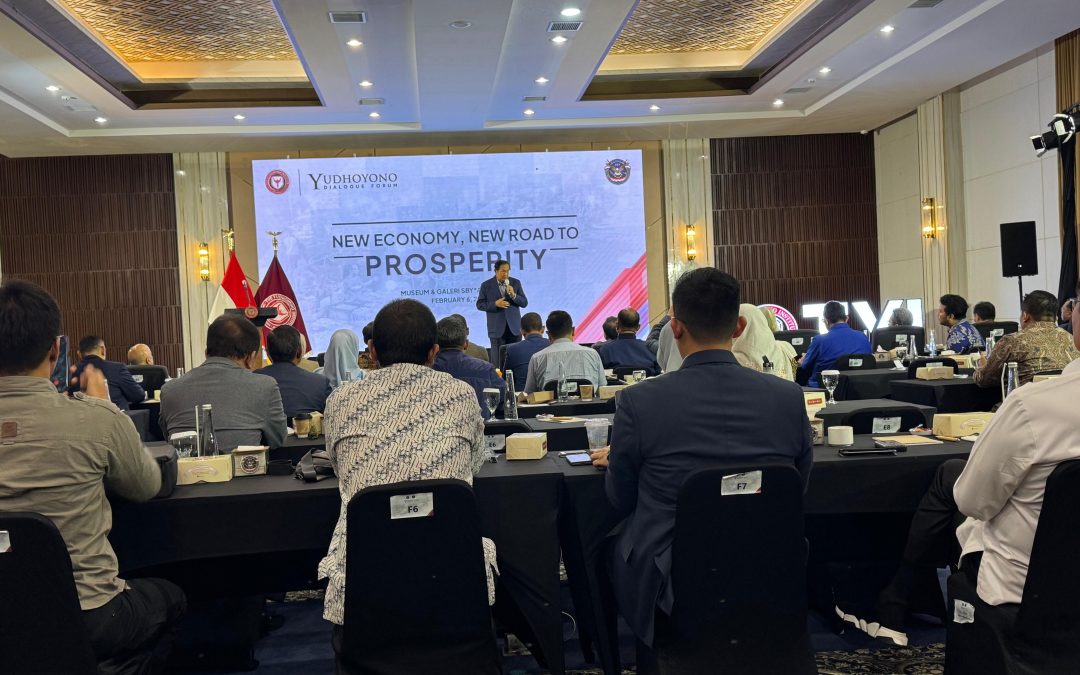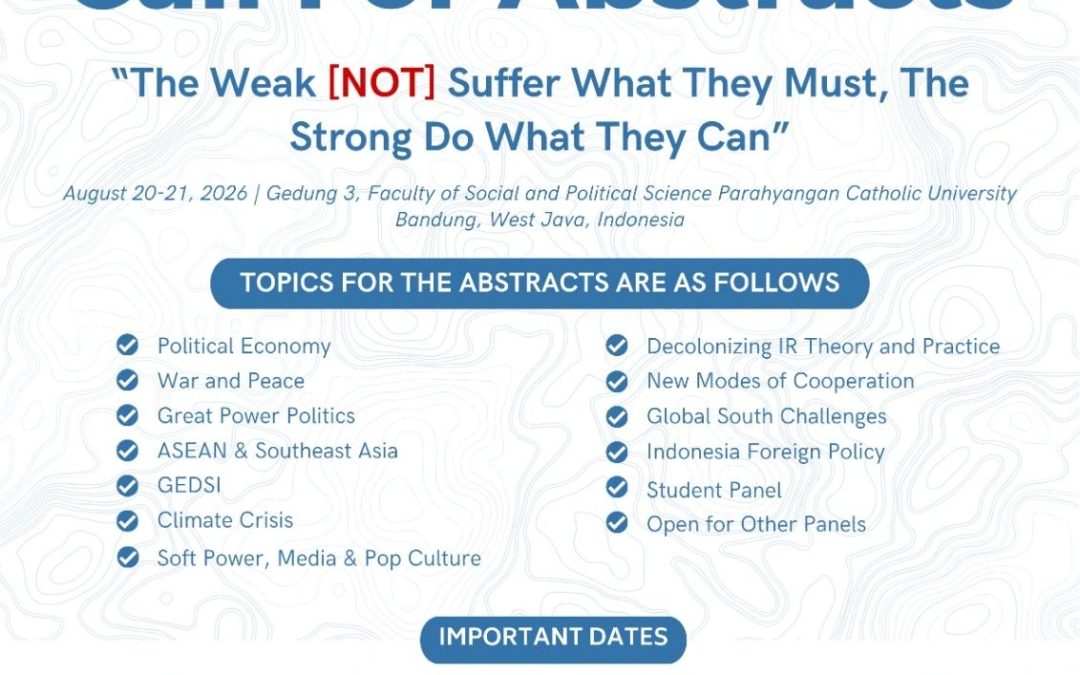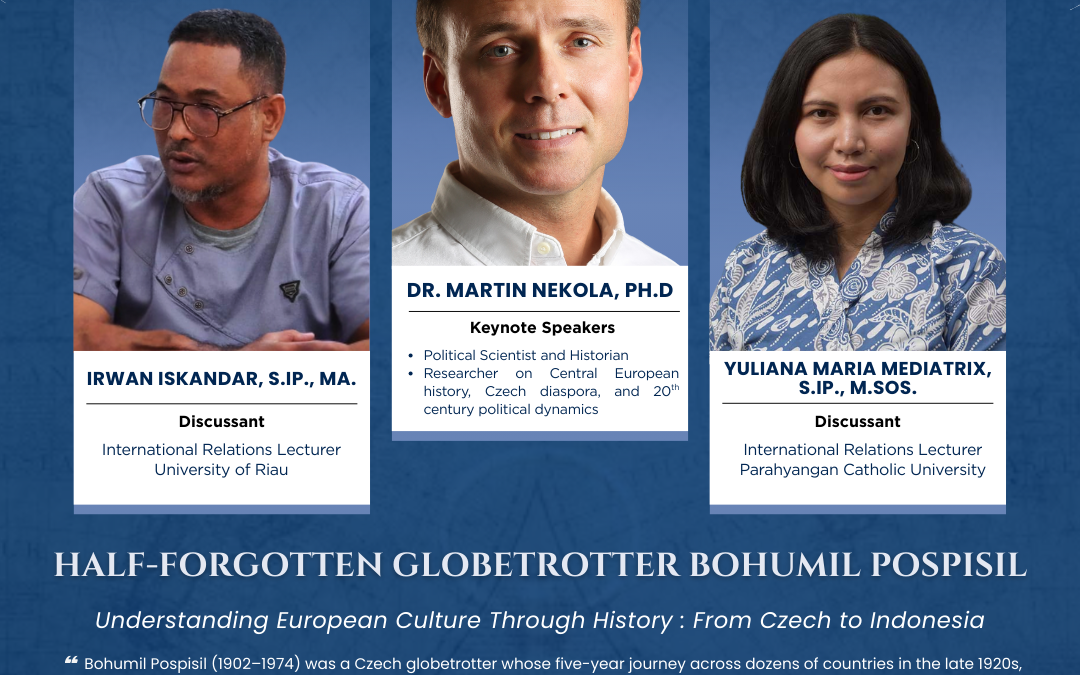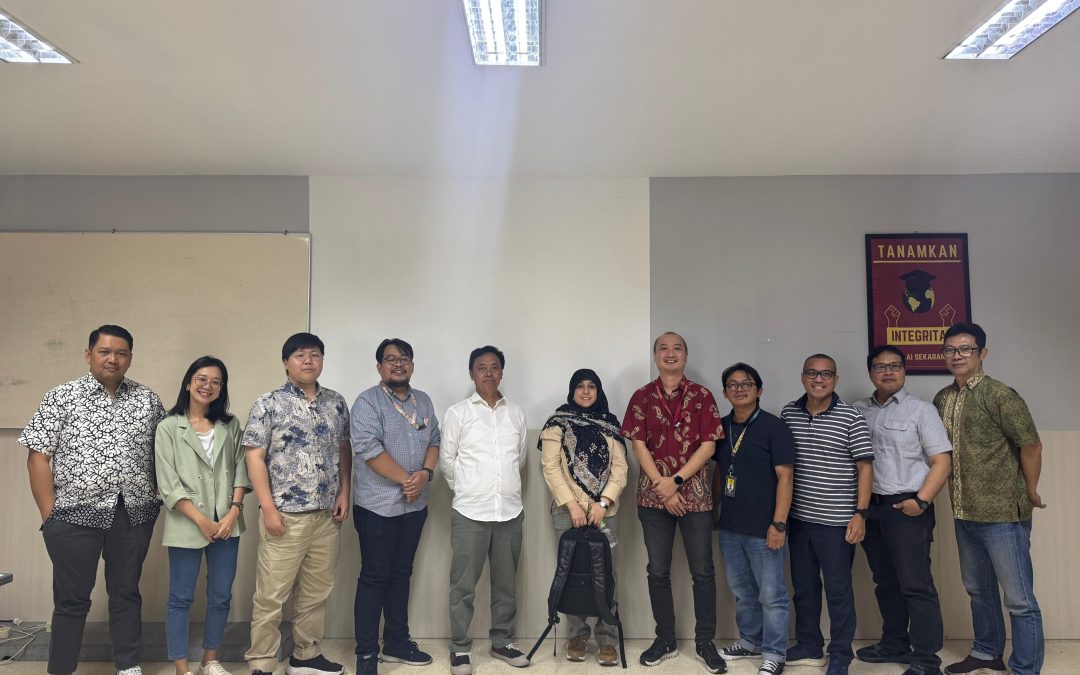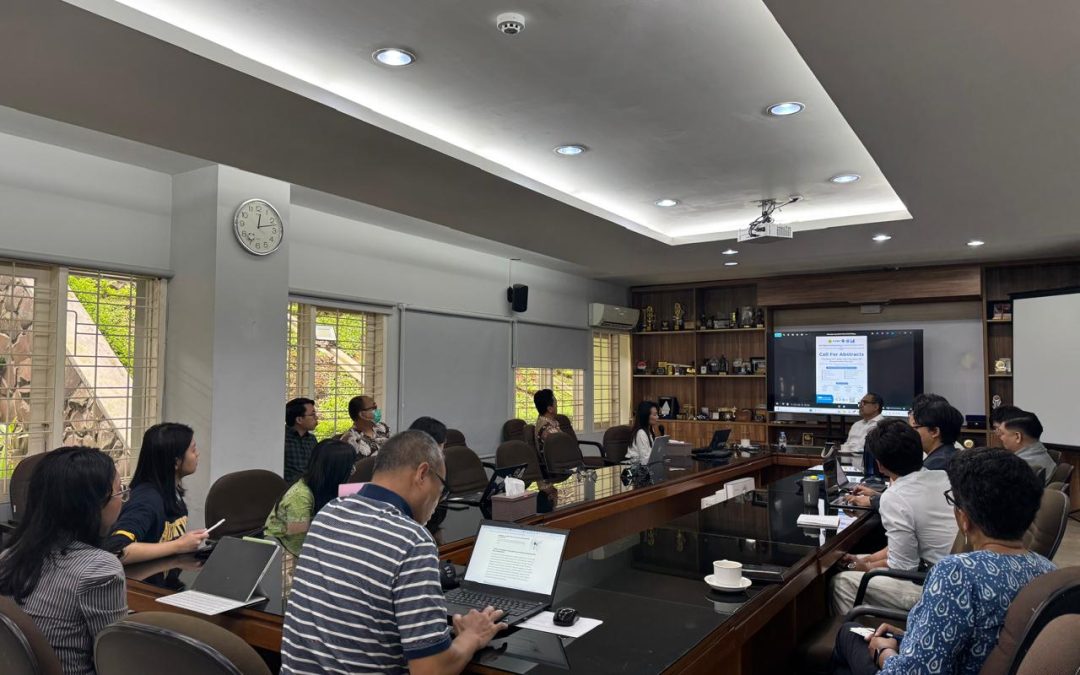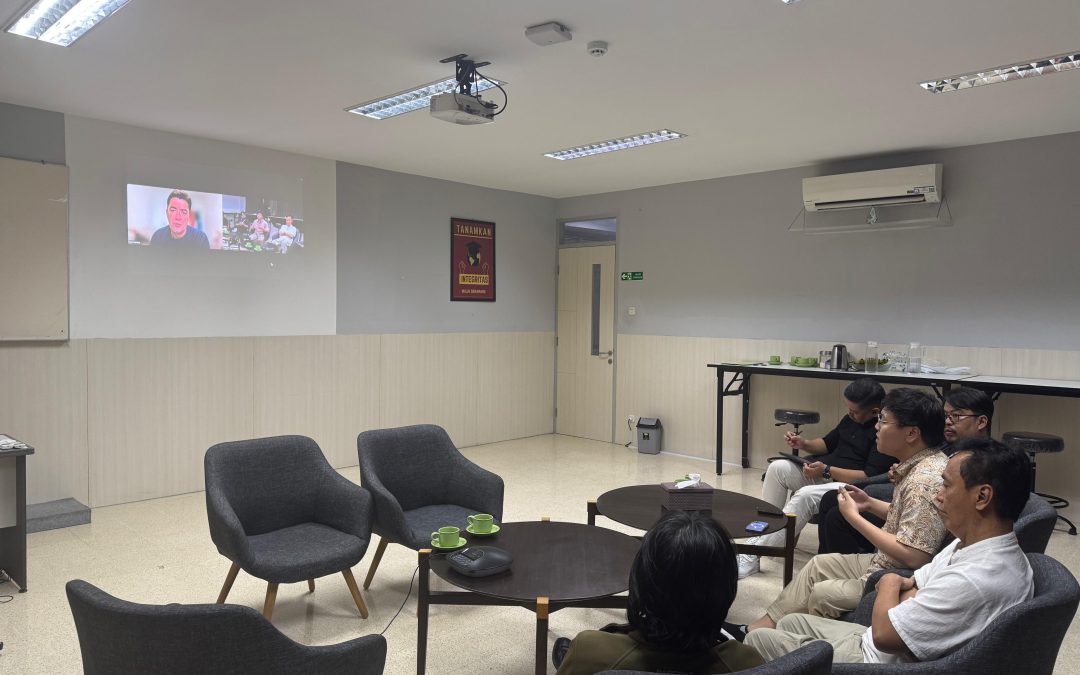On July 10, 2025, the Ministry of State Secretariat, in collaboration with the Parahyangan Center for International Studies (PACIS) at Parahyangan Catholic University (UNPAR), held a Kick-Off Meeting at the Ministry’s headquarters to initiate the development of the Grand Design for Competency Development and Training Curriculum for the Functional Position of Cooperation Analysts (JF AKS). This meeting marked the inaugural step in the strategic partnership between the Cooperation Analyst Training Center (Pusbin AKS) and PACIS to formulate a competency development planning document in support of the Indonesia Emas 2045 vision.
The event was chaired by the Head of Pusbin AKS and attended by representatives from several units within the State Secretariat, including the Bureau for Foreign Technical Cooperation (Biro KTLN), the Human Resources Division, the Partnership Management Division, the Center for Translation Training (Pusbiter), the Civil Service Training Center (PPKASN), and the National Civil Service Agency (BKN). The meeting aimed to: (1) present the conceptual and methodological framework for the development of the grand design; (2) outline the action plan for both the grand design and curriculum development; (3) foster a shared understanding of competency development across different levels of the JF AKS; (4) align expectations between Pusbin AKS and the PACIS academic team concerning the content and outcomes; and (5) identify challenges and mitigation strategies in the design process.
This collaborative initiative is an essential component in realizing the aspirations of Indonesia Emas 2045, particularly in the areas of human capital excellence, inclusive and sustainable economic development, equitable regional growth, and robust national resilience.
Speakers from PACIS delivered presentations emphasizing the importance of developing functional competencies within the framework of a modern bureaucracy and the dynamic governance of development cooperation. Yulius P. Hermawan, Chair of PACIS UNPAR, underscored the strategic role of Cooperation Analysts in supporting national and international development partnerships. He emphasized the importance of a needs-based curriculum that aligns with the principles of adult learning. The proposed curriculum integrates innovative instructional strategies—such as experiential learning, case studies, and simulations—to cultivate practical and effective skills.
In addition to conceptual frameworks, the meeting addressed the initial drafts of the grand design, proposed implementation strategies, and a timeline outlining methods to ensure systematic and adaptive competency development.
Various valuable insights emerged during the discussion. Ellen Chahianisi from BKN highlighted the importance of including a SWOT analysis that considers internal strengths and weaknesses to assess institutional capacity for program implementation. She also advocated for clearly defined competency profiles across JF AKS levels—First Expert, Junior, Intermediate, and Senior—accompanied by a detailed roadmap for the 2025–2029 period, including annual action plans in four key dimensions: regulation, human resources, management, and infrastructure.
Zeno from PPKASN suggested that the grand design adopt a Corporate University model, emphasizing a structured learning journey throughout the career span of Cooperation Analysts. He also proposed stakeholder mapping to optimize collaboration and ensure the successful implementation of the initiative.
Representatives from Pusbiter contributed by sharing experiences in developing the grand design for the Functional Position of Translator (JF Penerjemah), particularly the distinction between mandatory one-time functional training and more in-depth technical training. They introduced a tiered process model that ensures training quality, an approach recommended for adoption in the JF AKS design.
Furthermore, Idham from the Human Resources Division emphasized the need for a detailed competency profile that outlines the required competencies at each level, along with the associated modules and curriculum. Cut from the Organizational Affairs Bureau (Ortala) proposed the development of a web-based digital platform to facilitate information sharing, training record management, and continuous competency development among Cooperation Analysts across Indonesia.
Representatives from Biro KTLN underlined the importance of benchmarking with existing training systems, ensuring that the curriculum includes essential subjects such as basic cooperation literacy. They also supported the integration of the Corporate University model, with potential collaborative opportunities with the Ministry of Foreign Affairs.
The meeting further emphasized the need for a strategic yet flexible grand design supported by a competency framework that differentiates between functional and technical skills. This framework is expected to guide curriculum development, budget allocation, and consistency in direction amid policy changes.
For evaluation purposes, participants recommended using the Kirkpatrick Model, which evaluates training across four levels: participant satisfaction, learning outcomes, behavioral change, and impact on organizational performance. Additionally, the ADDIE (Analysis, Design, Development, Implementation, and Evaluation) instructional design model was proposed to support the effective development of the learning framework.
During the meeting, the PACIS team present included Yulius P Hermawan as PACIS Chair, Ratih Indraswari as Team Leader, Jessica Martha, Theodora Pritadianing Saputri, and Meyta Saraswaty Putri, as well as Nazwa and Roybafihi as research assistants.
Written by: Nazwa


